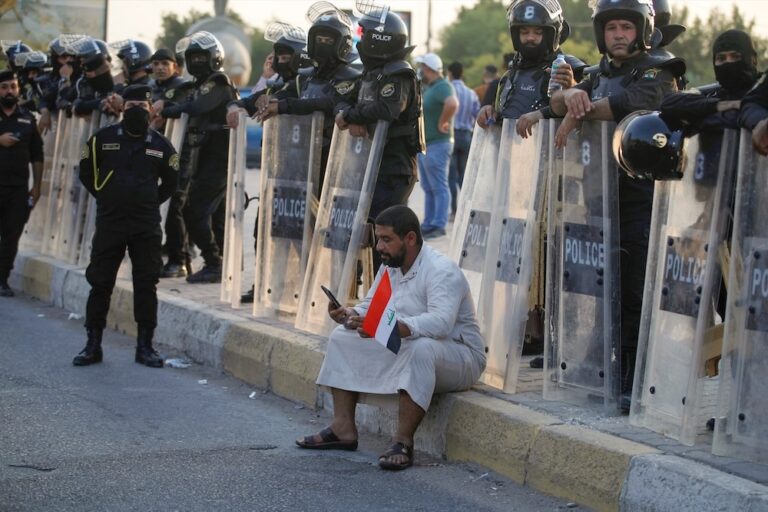In a new report titled, "Between Freedom and Abuses: The Media Paradox in Iraqi Kurdistan", RSF reviews the political and historical circumstances surrounding the growth of media outlets in the region.
(RSF/IFEX) – 3 November 2010 – The press freedom situation is better in Iraqi Kurdistan than it is in neighboring regions, and with 850 media outlets officially registered and 5,000 journalists, has considerably improved over the last decade.
Yet the number of attacks against journalists has also grown steadily over the last two years. Police and security forces tied to the two leading political parties: Massoud Barzini’s Kurdistan Democratic Party (KDP) and Jalal Talabani’s Patriotic Union of Kurdistan (PUK), are chiefly responsible for the increase.
Two journalists have been murdered because of their work since 2008 and the most recent killing of Sardhast Osman in May 2010 has exacerbated the climate of fear within the profession.
There also remains a profound lack of understanding between authorities and media professionals, as neither camp seems to accept the role of, or necessity for, the other.
In its new report “Between Freedom and Abuses: The Media Paradox in Iraqi Kurdistan”, Reporters Without Borders reviews the political and historical circumstances surrounding the growth of media outlets in the region in order to gain a clearer of the current trends. The report contains recommendations for action on the part of authorities in Iraqi Kurdistan as well as journalists.


